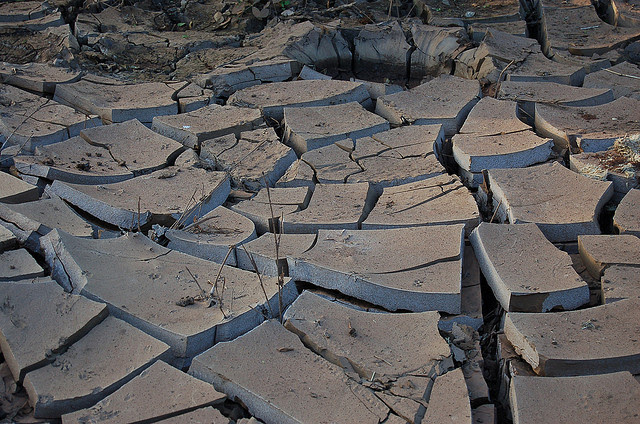
The Wall Street Journal has repeatedly blamed environmental regulations for California's current water crisis while touting a House GOP plan that would upend restoration efforts along the San Joaquin River without solving the state's crisis.
2013 was California's driest year since 1849, and now the state is experiencing a record-breaking drought. ThinkProgress reports the drought is so dire that “17 communities across the state are in danger of running out of water within 60 to 120 days.” In an attempt to preserve what little water the state has left, the California Department of Water Resources has had to cut water allocations entirely to 29 local agencies, forcing them to look elsewhere for water. Farming and fishing industries are among the most impacted by this water crisis.
In response, House Republicans are expected to pass emergency legislation on February 5 which seeks to redirect water to California's Central Valley while reducing the amount of water currently dedicated to fish, wildlife, and habitat restoration under Endangered Species Act protections. According to the GOP, the bill will alleviate the “man-made California drought.”
The Wall Street Journal echoed the House Republicans' accusation in a pair of editorials, writing that with the water shortage “Californians are getting another first-hand lesson in the high costs of green regulation” that “puts green indulgences above human welfare.” The editors praised the Republican proposal, writing, “What the House legislation really does is prioritize the interest of farmers over fish.”
But the WSJ's blame is misplaced -- despite Republicans' scapegoating, environmental restrictions only account for 15 to 20 percent of recent cutbacks to the Bay-Delta water supply:

Thus, overriding the Endangered Species Act and consequently allowing for the extinction of endangered species is not likely to solve California's water crisis, according to experts:
Simply removing the Endangered Species Act restrictions on water diversions would be unlikely to provide much additional water for nonenvironmental uses, especially in the long run.
[...]
Responsibility for water problems must be shared by all water users; the problems fundamentally result from having a vibrant economy and society in an arid climate. Although rhetorically convenient, attempts to vilify one group of water users for California's diverse water problems are factually incorrect and get in the way of more productive policy discussions. Despite inevitable water scarcity, both urban and agricultural water users throughout the state have considerable opportunities to use and manage water more efficiently.
And besides failing to solve the water supply problem, overriding the Endangered Species Act protections would threaten California's already struggling fishing industry. As the National Wildlife Federation explained:
By shutting down the restoration of the San Joaquin River in order to send more water to farmers, these lawmakers are condemning our endangered salmon to suffer even more losses.
Doing so would reverse the significant progress we have made to date under the Endangered Species Act to restore salmon and other endangered fish species in the delta. It would also have disastrous consequences for California's fishing industry, devastating Central Valley salmon populations. With our state's salmon industry valued at $1.4 billion in economic activity annually, this legislation would endanger the livelihoods of the tens of thousands of people the industry employs from Santa Barbara to northern Oregon.
The WSJ also failed to acknowledge that California's water crisis is not man-made as House Republicans claim, but could actually be exacerbated by climate change. Not only does climate change make Western droughts longer, stronger, and more frequent, but it has also made the West hotter.
The paper follows suit with right-wing media's reputation for spreading misinformation on climate change, often neglecting to discuss climate change during periods of record heat or drought.
Photo Credit: Creative Commons: Matt Rudge, 2006